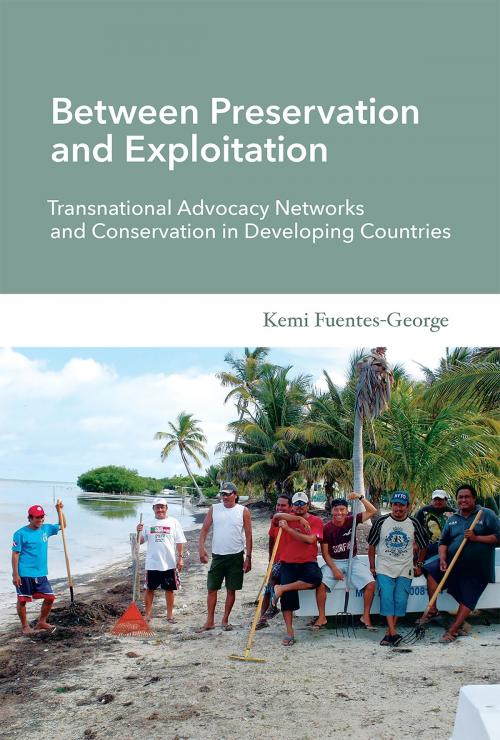Between Preservation and Exploitation
Transnational Advocacy Networks and Conservation in Developing Countries
Nonfiction, Social & Cultural Studies, Political Science, Government, Public Policy, Science & Nature, Nature, Environment, Environmental Conservation & Protection| Author: | Kemi Fuentes-George | ISBN: | 9780262333931 |
| Publisher: | The MIT Press | Publication: | April 1, 2016 |
| Imprint: | The MIT Press | Language: | English |
| Author: | Kemi Fuentes-George |
| ISBN: | 9780262333931 |
| Publisher: | The MIT Press |
| Publication: | April 1, 2016 |
| Imprint: | The MIT Press |
| Language: | English |
A study of biodiversity governance analyzes the factors that determine the effectiveness of transnational advocacy networks and the importance of justice claims to conservation.
In the late 2000s, ordinary citizens in Jamaica and Mexico demanded that government put a stop to lucrative but environmentally harmful economic development activities—bauxite mining in Jamaica and large-scale tourism and overfishing on the eastern coast of the Yucatán Peninsula. In each case, the catalyst for the campaign was information gathered and disseminated by transnational advocacy networks (TANs) of researchers, academics, and activists. Both campaigns were successful despite opposition from industry supporters. Meanwhile, simultaneous campaigns to manage land in another part of the Yucatán and to conserve migratory birds in Egypt had far less success. In this book, Kemi Fuentes-George uses these four cases to analyze factors that determine the success or failure of efforts by TANs to persuade policymakers and private sector actors in developing countries to change environmental behavior.
Fuentes-George argues that in order to influence the design and implementation of policy, TANs must generate a scientific consensus, create social relationships with local actors, and advocate for biodiversity in a way that promotes local environmental justice. Environmentally just policies would allow local populations access to their lands provided they use natural resources sustainably. Justice claims are also more likely to generate needed support among local groups for conservation projects.
In their conservation efforts, Jamaica, Mexico, and Egypt were attempting to meet their obligations under the UN Convention on Biological Diversity and other regional agreements. Fuentes-George's innovative analysis shows the importance of local environmental justice for the implementation of international environmental treaties.
A study of biodiversity governance analyzes the factors that determine the effectiveness of transnational advocacy networks and the importance of justice claims to conservation.
In the late 2000s, ordinary citizens in Jamaica and Mexico demanded that government put a stop to lucrative but environmentally harmful economic development activities—bauxite mining in Jamaica and large-scale tourism and overfishing on the eastern coast of the Yucatán Peninsula. In each case, the catalyst for the campaign was information gathered and disseminated by transnational advocacy networks (TANs) of researchers, academics, and activists. Both campaigns were successful despite opposition from industry supporters. Meanwhile, simultaneous campaigns to manage land in another part of the Yucatán and to conserve migratory birds in Egypt had far less success. In this book, Kemi Fuentes-George uses these four cases to analyze factors that determine the success or failure of efforts by TANs to persuade policymakers and private sector actors in developing countries to change environmental behavior.
Fuentes-George argues that in order to influence the design and implementation of policy, TANs must generate a scientific consensus, create social relationships with local actors, and advocate for biodiversity in a way that promotes local environmental justice. Environmentally just policies would allow local populations access to their lands provided they use natural resources sustainably. Justice claims are also more likely to generate needed support among local groups for conservation projects.
In their conservation efforts, Jamaica, Mexico, and Egypt were attempting to meet their obligations under the UN Convention on Biological Diversity and other regional agreements. Fuentes-George's innovative analysis shows the importance of local environmental justice for the implementation of international environmental treaties.















